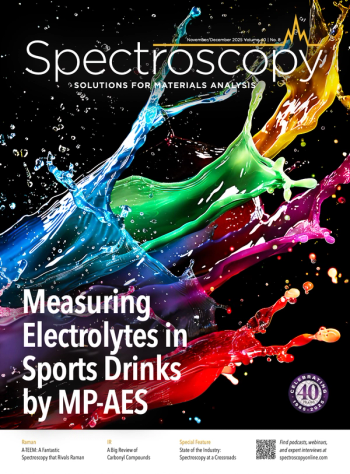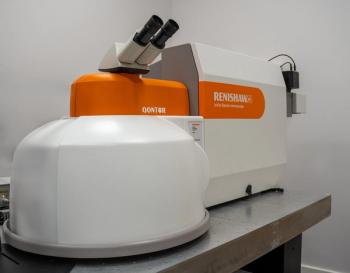
Paulina Koziol Receives 2021 William G. Fateley Award at SciX 2021
Paulina Koziol, a third-year PhD student of biophysics at the Faculty of Physics, Astronomy, and Applied Computer Science of Jagiellonian University in Krakow, Poland, will receive the 2021 William G. Fateley Award at SciX 2021.
Paulina Koziol, a third-year PhD student of biophysics at the Faculty of Physics, Astronomy, and Applied Computer Science of Jagiellonian University in Krakow, Poland, will receive the 2021 William G. Fateley Award at SciX 2021. The conference takes place September 26–October 1, in Providence, Rhode Island.
Koziol worked for a year as a research technician on a project led by Prof. Tomasz P. Wrobel, focusing on the development of histopathological models for cancer detection based on infrared (IR) imaging and machine learning. She then enrolled in a PhD program under Wrobel’s supervision. During her studies, she continues to work on classification models, with a focus on pancreatic cancer, including translation from Fourier-transform infrared (FT-IR) spectroscopy to a faster quantum cascade laser (QCL) modality. She has also done extensive work on denoising influence on IR spectroscopic data quality and classification results.
Currently, Koziol is interested in implementing polarized infrared light to determine macromolecular orientation and level of ordering, mainly for fibrous tissue, which may play a significant role in cancer’s microenvironment. She is the author of 10 publications, including three as first author. Her awards and stipends include the prestigious START stipend from the Foundation for Polish Science, and a stipend under the Iwanowska Programme from the Polish National Agency for Academic Exchange NAWA covering a six-month internship in Prof. Rohit Bhargava’s group at the University of Illinois at Urbana-Champaign.
Koziol works at the SOLARIS National Synchrotron Radiation Centre in Krakow, where she is a part of a team of beamline scientists constructing the Solaris Advanced IR (SOLAIR) beamline. She is also the principal investigator of her own research grant from the National Science Centre Poland titled “Improving 3D macromolecule orientation determination based on polarized IR chemical imaging by optimization of scattering removal algorithms.”
The William G. Fateley Student Award is administered by the Coblentz Society. The award honors the career and life of William G. Fateley, who passed away in 2009 and is remembered for his highly regarded scientific contributions as well as contributions made to the social fraternity of international spectroscopy prior to the advent of LinkedIn and Facebook.
Newsletter
Get essential updates on the latest spectroscopy technologies, regulatory standards, and best practices—subscribe today to Spectroscopy.



